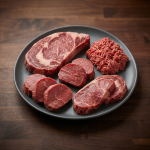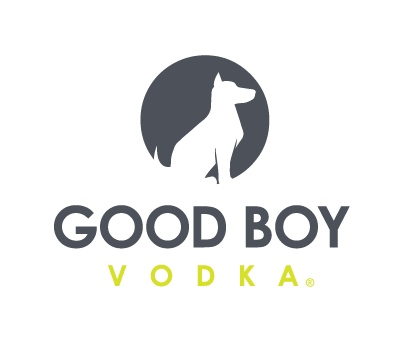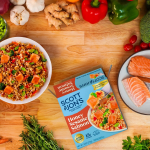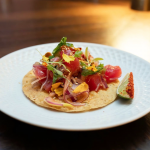Stryve Reports Q2 Earnings, Discusses Supplement Play
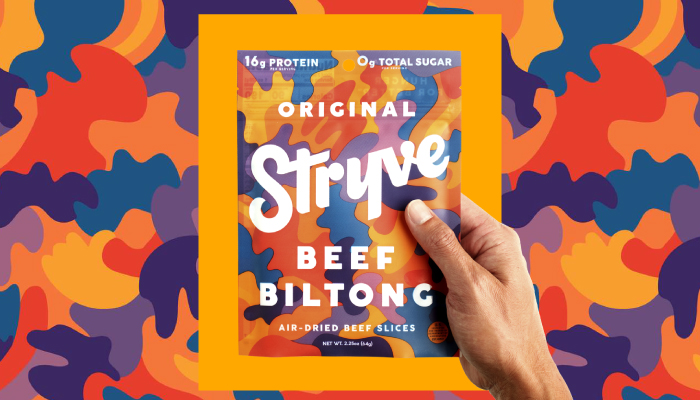
On its first quarterly earnings call since going public last month, Stryve Foods reported net sales were up 71.8% to $7.4 million for the quarter, driven by strong wholesale gains as well as increasing omnichannel distribution. The company reported gross profits of $3.6 million in the second quarter, an increase of 148.3%.
In distribution, the company’s Stryve Beef Biltong, Kalahari Biltong and Vacadillos Carne Seca products are now sold in over 25,000 doors with 4,000 new doors being added, including placement in 7-Eleven, Circle K and Wawa. It also entered the club channel, with pickup by the Northwest region of Costco for Stryve meat snacks.
The company’s velocities are also up 63.2% versus the same 12 week period a year ago, according to Spins/IRI data cited by co-CEO and CMO Jaxie Alt. Stryve’s direct-to-consumer business also grew during the quarter, up 55% and accounting for 38.9% of sales. Alt said 65% of online sales are from the company’s own web site, with Amazon and other third party sellers making up the other 35%.
Still, Alt said there is “still so much upside” in traditional retail as the company continues to expand to more stores and adds more SKUs to shelf.
“We sell on Amazon as consumers are there. But on our own dot com, we make higher margins have far better control over shipping and inventory can utilize email and texting to drive sales rapidly and contest and innovate with very little upfront costs,” Alt said. “E-commerce gives us the ability to truly reach every American consumer and deliver our products right to their doorstep and it is a key pillar to our distribution strategy.”
Alt added that the company also increased its profit margin from 33.7% to 48.7%. Though some of this margin growth might be attributed to the company’s success online, Alt said she believes that margin is “likely to improve” as the company scales. Additional increases in margin were driven by being able to bring certain product elements in house, which had previously been handled by third party contractors.
On the call, co-founder and co-CEO Joe Oblas discussed the launch of Stryve Nutrition, its protein powder sub-brand that debuted earlier this month. Oblas said the Stryve Nutrition is a “logical extension and natural complement” to its meat snack offerings, and the company eventually plans to launch new products under the sub-brand, all of which will be “natural.”
Oblas was previously the co-founder and COO of PROSUPPS while Stryve co-founder and chairman Ted Casey also was the founder of nutrition brand Dymatize.
“Based on our extensive experience in health and wellness in previous companies that we founded, scaled and sold, the next vertical we are entering is functional nutrition,” Oblas said on the call. “We saw an opportunity in the functional nutrition space to develop products that deliver better nutrition and better taste than what is available in the market today. We see this as a great opportunity to rapidly scale to include other products under the Stryve Nutrition umbrella.”

Oblas said he expects distribution for the new line to be “very big very fast,” and though he sees ecommerce as a key channel for the brand, Stryve also plans to go after retail distribution. He added that the protein powders will be “inexpensive” to sample via single serve sachet packages included with every Stryve online order.
The segment does differ from the core meat snack business not only because it doesn’t utilize Stryve’s own production facilities, but also because international sales will also be key to the line’s success. While meat snacks are complicated to import into other countries, Oblas claimed that, from his experience, “most of the U.S. [nutrition] brands…were generating half of all their revenue internationally.”
The company will also be focusing more efforts on its Hispanic-focused meat snack brand Vacadillos, which COO and CFO Alex Hawkins said will “drive meaningful growth” for the company going forward. Despite utilizing branding and flavors that were designed for this demographic, the company believes that it will also cross over to the “mainstream” consumer.
“We believe that there is a very robust market opportunity with roughly 60 million Hispanics in the U.S. today,” he said. “And we’ve built a fantastic offering that we believe resonates well with that consumer base.”
Another core focus area will include helping Kalahari (which the company said is in 2,000 Whole Foods Markets and independent retailers) expand beyond the natural channel. Though demos and sampling had been put on hold due to COVID-19, the company plans to build on its existing strong investments in online and influencer marketing. Marketing has also involved the purple, branded sales vans territory managers drive, which Oblas said are known internally as the “beef buses,” and can be used to demo at outdoor events.
Innovation will also be key, with Stryve this week launching single-serve packages of its biltong line. Just in time for back to back-to-school sales, the new size is sold in 8-countmultipacks containing two different flavors, and opens the product line to new consumption opportunities, Alt said. In ecommerce, a whole 8 oz. “slab” of biltong is one of the company’s top sellers, and Alt said Stryve is also working to get this product sold behind specialty and deli counters where it can be carved to order.
Hawkins said the company is projecting net revenues of approximately $31 million to $34 million for the full year 2021, an increase of 82% to 100% compared to 2020. Oblas said the company can handle over $100 million in revenue in its current facilities.



